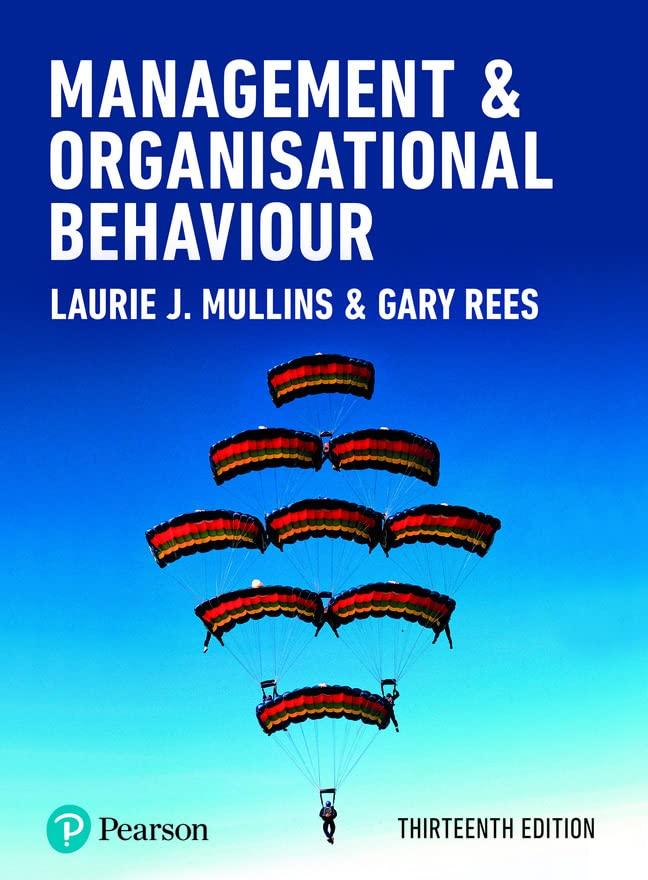Given below are a number of real-life situations. You are required to: a. Think through each one
Question:
Given below are a number of real-life situations. You are required to:
a. Think through each one and explain how you as the manager might best handle the discussion with your member of staff.
(b) Record how you would approach each discussion/interview.
(c) What specific questions might you be likely to ask and why?
(d) Share and compare your responses with colleagues in a small group situation.
Situation 1
One of your employees who is hard-working and conscientious with tasks continually arrives late for work. This is the sixth time this has happened. Their excuse is that they have to take their child to nursery because they are getting divorced and their spouse refuses to do this task.
Situation 2
You receive a complaint from one of your female employees who claims to have acci- dently found a pornographic image on the PC of another employee and finds this offensive.
Situation 3
One of your permanent employees has been accused of assaulting another member of staff who works in the same organisation but as an independent contractor.
Situation 4
You overhear a member of your department commenting that 'you have no idea about the technical complexity of their work, and don't know how you are able to manage a department like this!'
Situation 5
A key client calls you to complain about sarcastic and impatient comments made by one of your more experienced technicians. Comments like 'Your people must be really thick if they think that's how it works...' have proved less than helpful. You know this person has been working long hours, achieving excellent results and is clearly committed to their job and the department. In fact, you have recently promoted the technician for these very reasons.
Situation 6
In a recent management meeting, a relatively new colleague repeatedly contradicted you and appeared to be 'scoring points' at your expense. Although the colleague had made some valid, even perceptive comments, it isn't exactly helping your relationship get off to an encouraging start. Furthermore, this has happened on a previous occasion.
Questions
✱ How would you summarise the essential nature of the manager–subordinate relationship?
✱ Using your own examples, explain the importance of using appropriate approaches when dealing with potentially difficult situations.
✱ What have you learned about your potential skills of effective management of people?
Step by Step Answer:

Management And Organisational Behaviour
ISBN: 9781292422381
13th Edition
Authors: Laurie Mullins, Gary Rees





